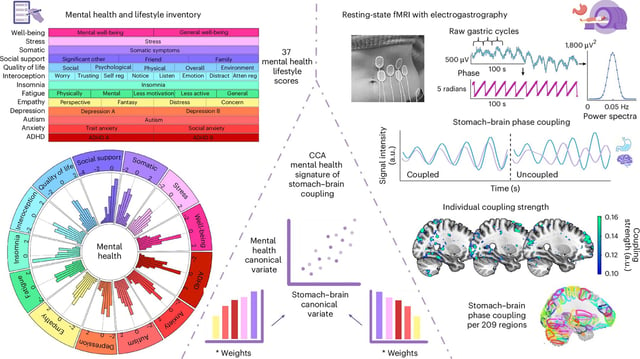Overview
- Aarhus University researchers published the largest stomach–brain coupling study to date on August 12 in Nature Mental Health using fMRI and electrogastrography data from 243 participants.
- Analyses revealed that tighter synchronization between the stomach’s slow electrical waves and frontoparietal brain networks correlates with elevated anxiety, depression and stress.
- The work redirects gut–brain research toward the stomach’s enteric nervous system, highlighting its direct vagal links to the brain rather than focusing on the lower-gut microbiome.
- Authors emphasize the findings are correlational and caution that stronger gastric–brain coupling does not prove a causal role in mental illness.
- The research team plans follow-up clinical trials to assess whether gastric–brain synchronization can predict treatment outcomes or signal impending mental health crises.

